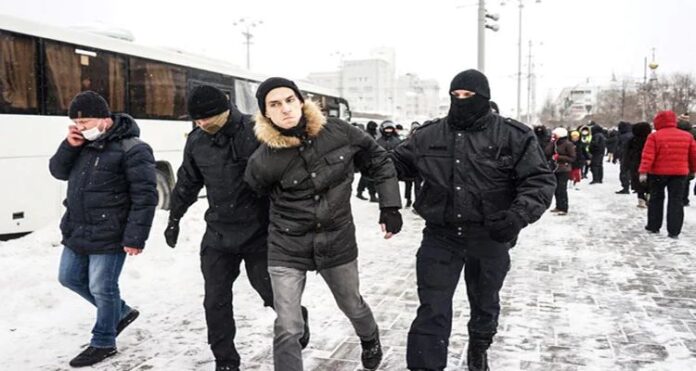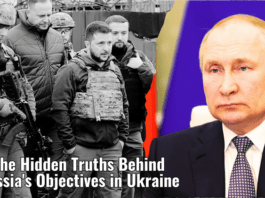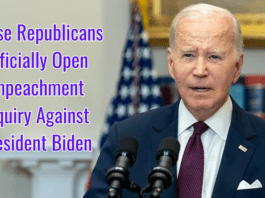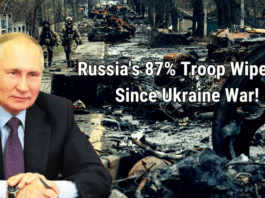Vera Kotova was one of the first people to be judged and fined just under $240 under a new Russian law that punishes anyone who is deemed to have discredited the armed forces after nearly eight hours of sitting in a police station and court.
Her crime was writing “No to war” with a heart in the snow at the foot of a statue of Soviet state founder Vladimir Lenin in Krasnoyarsk’s square during a sparsely attended protest rally.
Her punishment, imposed by Krasnoyarsk’s central district court, was a 30,000 rouble fine, which she is appealing.
The incident went viral on local media and the Telegram messaging app, aided by a video of an unidentified police officer rubbing away the now-banned phrase with his foot.
“It was one of several cases under the so-called military censure law about discrediting the army, one of several court rulings, literally because someone wrote their opinion in the snow, just two words,” Kotova’s lawyer, Vladimir Vasin, explained.
In Russian, the phrase “nyet voinye” means “no to war.”
The Kremlin did not respond immediately to a request for comment. When contacted late in the day after working hours, Krasnoyarsk police did not respond, and the local court could not be reached.
On March 4, Russia’s parliament passed legislation making public actions aimed at “discrediting” Russia’s army illegal, as well as prohibiting the spread of fake news or the “public dissemination of deliberately false information about the use of the Armed Forces of the Russian Federation.”
On February 24, President Vladimir Putin dispatched his forces to Ukraine in what Moscow refers to as a “special military operation” to demilitarise and “denazify” its neighbor. Ukraine and the majority of the rest of the world have condemned this as a sham pretext for an invasion of a democratic country.
Fear of Job Loss and Retaliation
Kotova was fined 30,000 roubles ($239), but she has yet to pay it because she is appealing. In Russia, the average monthly wage is around 78,000 roubles ($621).
However, she and several other protesters say they fear they have jeopardized their and their families’ jobs by protesting or expressing concerns about the war, highlighting the growing self-censorship imposed by the new laws on Russians who criticize or oppose the war.
Vasin, speaking from Krasnoyarsk, told Reuters that “As everyone can see, those who do that are being arrested as a result of those words…
These words are now forbidden under the new law. A person who writes two simple words in the snow does not win in court “.







